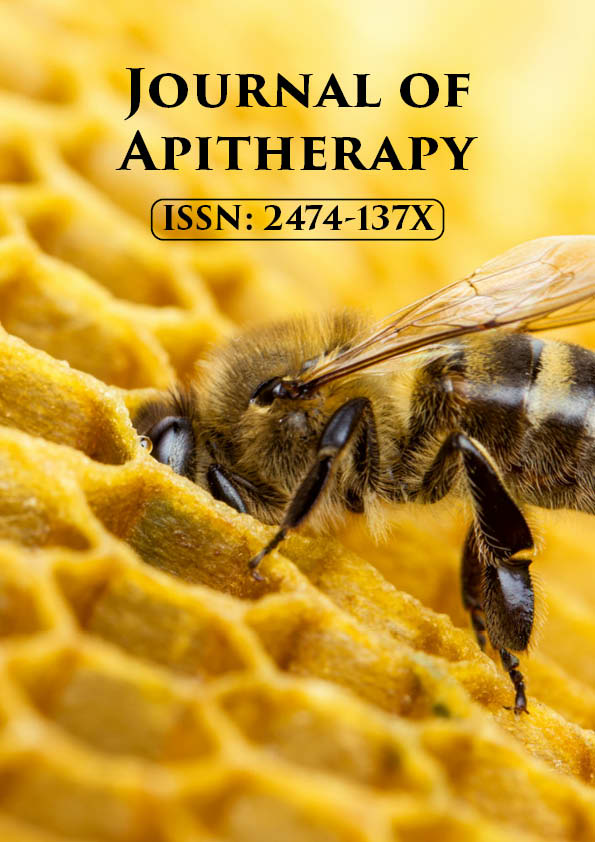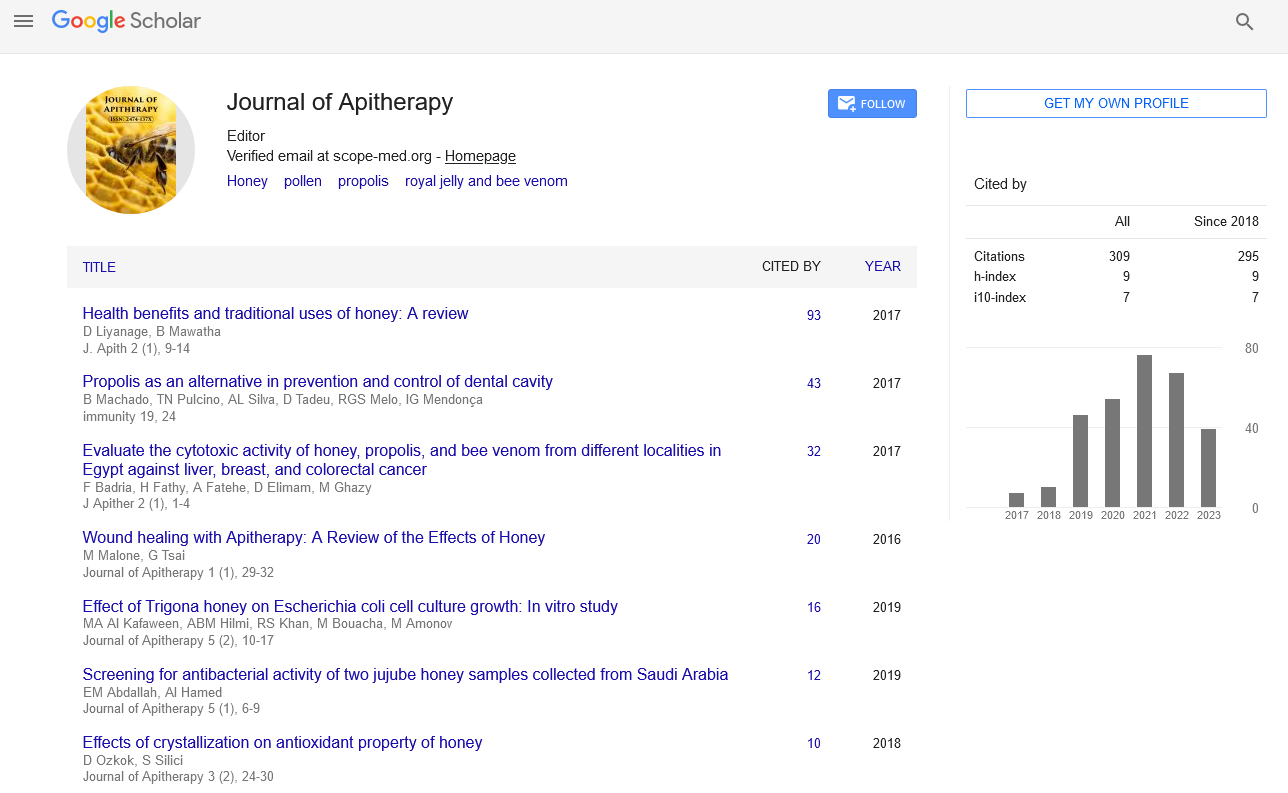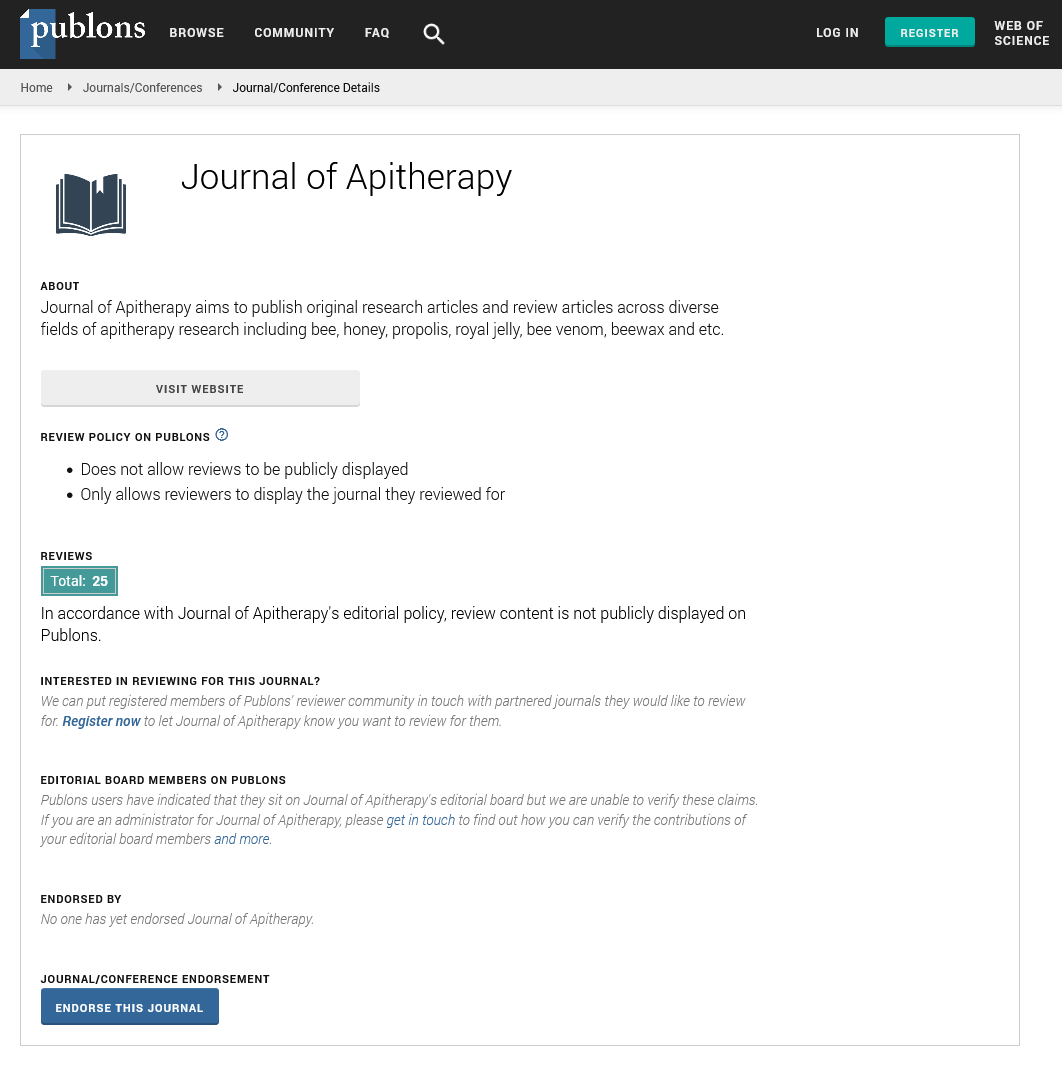Study on antibacterial effi cacy of diff erent honey types in South Western Nigeria against wound associated bacteria
Abstract
Rasheed Omotayo Adeyemo, Nkem Torimiro, Saheed Adekunle Akinola, Sodiq Kolawole Lawal, Tesleem Olatunde Abolarinwa, Wasiu Olalekan Adewoye
Aim: The study assessed and compared the antibacterial activities of different honey types in Southwest Nigeria. It also compared antibacterial potency of the honey with a standard antibiotic. This was with a view to ascertain and providing information on cheaper alternative potent antibacterial product of natural source as well to confirm the antibacterial efficacy of the honey in Southwest, Nigeria. Materials and Methods: The sensitivity testing of honey samples was determined using agar-well diffusion method. The minimum inhibitory concentration of honey samples was determined using broth tube dilution method. Minimum bactericidal concentration of honey samples was determined. The data obtained were analyzed with appropriate statistical methods. Results: The zone of inhibitions exhibited by all honey samples against the test bacteria ranged between 6 ± 0.0 and 30.7 ± 1.2 mm. The death rate ranges between 52.1% and 94.6% in the dark amber honey sample (H9) after 120 min of contact time at the same concentration. Conclusion: In this study, super dark amber honey shows the highest antimicrobial property which compared favorably with the standard antibiotic (streptomycin). This honey has shown to have a potent broad spectrum antibacterial activity. However, further studies are recommended to assess its practicality in terms of use in the clinical setting.
https://transplanthair.istanbul
https://hairclinicturkey.co
https://hairclinicistanbul.co
https://besthairtransplant.co
https://hairtransplantistanbul.co







